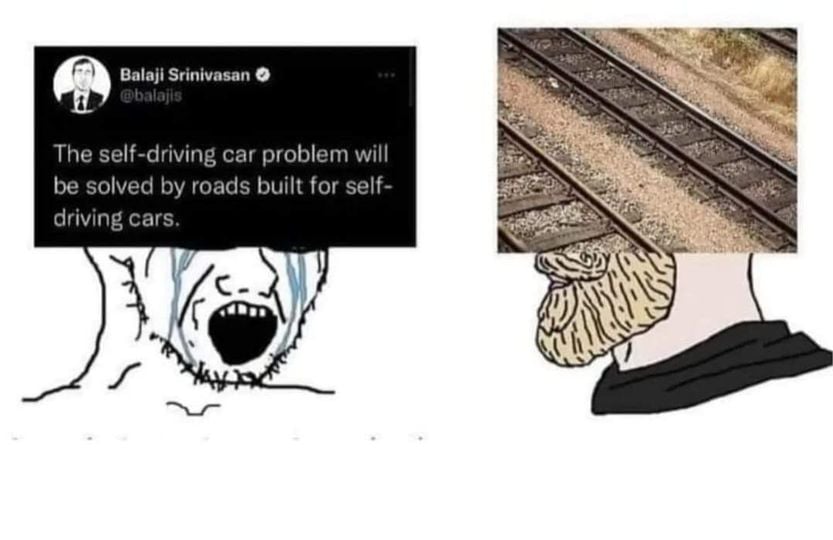this post was submitted on 07 Nov 2024
1321 points (98.6% liked)
memes
15582 readers
2855 users here now
Community rules
1. Be civil
No trolling, bigotry or other insulting / annoying behaviour
2. No politics
This is non-politics community. For political memes please go to [email protected]
3. No recent reposts
Check for reposts when posting a meme, you can only repost after 1 month
4. No bots
No bots without the express approval of the mods or the admins
5. No Spam/Ads
No advertisements or spam. This is an instance rule and the only way to live.
A collection of some classic Lemmy memes for your enjoyment
Sister communities
- [email protected] : Star Trek memes, chat and shitposts
- [email protected] : Lemmy Shitposts, anything and everything goes.
- [email protected] : Linux themed memes
- [email protected] : for those who love comic stories.
founded 2 years ago
MODERATORS
you are viewing a single comment's thread
view the rest of the comments
view the rest of the comments

The problem is "perfection" looks different to different people.
If you're optimizing for efficiency, then you're absolutely correct.
If you're optimizing for convenience then shit like personal taxi drones is probably gonna be better.
Trains are extremely convenient. You optimize them for convenience by adding more trains.
That's how you get to cars.
Add more trains.
The trains now need to seat fewer people so make them smaller. Maybe 2-7 people per train.
Most routes aren't needed at any given time, so you might as well only run the train when someone needs it.
Rather than keeping the unused trains in a central depot, keep them at the departure points
We can't staff all these trains, and if the departure points are peoples' homes, then let's have the people themselves drive it
The network of destinations requires a TON of rail switches, and coordinating that is a complicated. Better to use a technology that doesn't require switches, like wheels on pavement.
Boom, cars.
So it really depends on what you're optimizing for.
And walkability.
When I first moved to Boston many years ago, I had some enlightening experiences. I loved how walkable Boston is, I loved trains, but I did not expect the the feeling of freedom I got from leaving my door with only a T pass in my wallet and Having so much of the city so convenient.
It was revelatory just how much more convenient that was than using a car, when all my life I expected to use a car to go practically anywhere. The challenge is sharing this experience among others who have only known car life, making the advantages real, immediately beneficial.
And yet a coordinated approach with multiple strategies will most effectively cover every use case.
Yes it’s critical that we refocus much of our transportation effort to give more people better choices in more scenarios, but that will never rule out cars
The point I was trying to make was that tech bros are almost certainly trying to optimize for convenience, because they live in a bubble where thats what's important to them (or that's what has the highest margins).